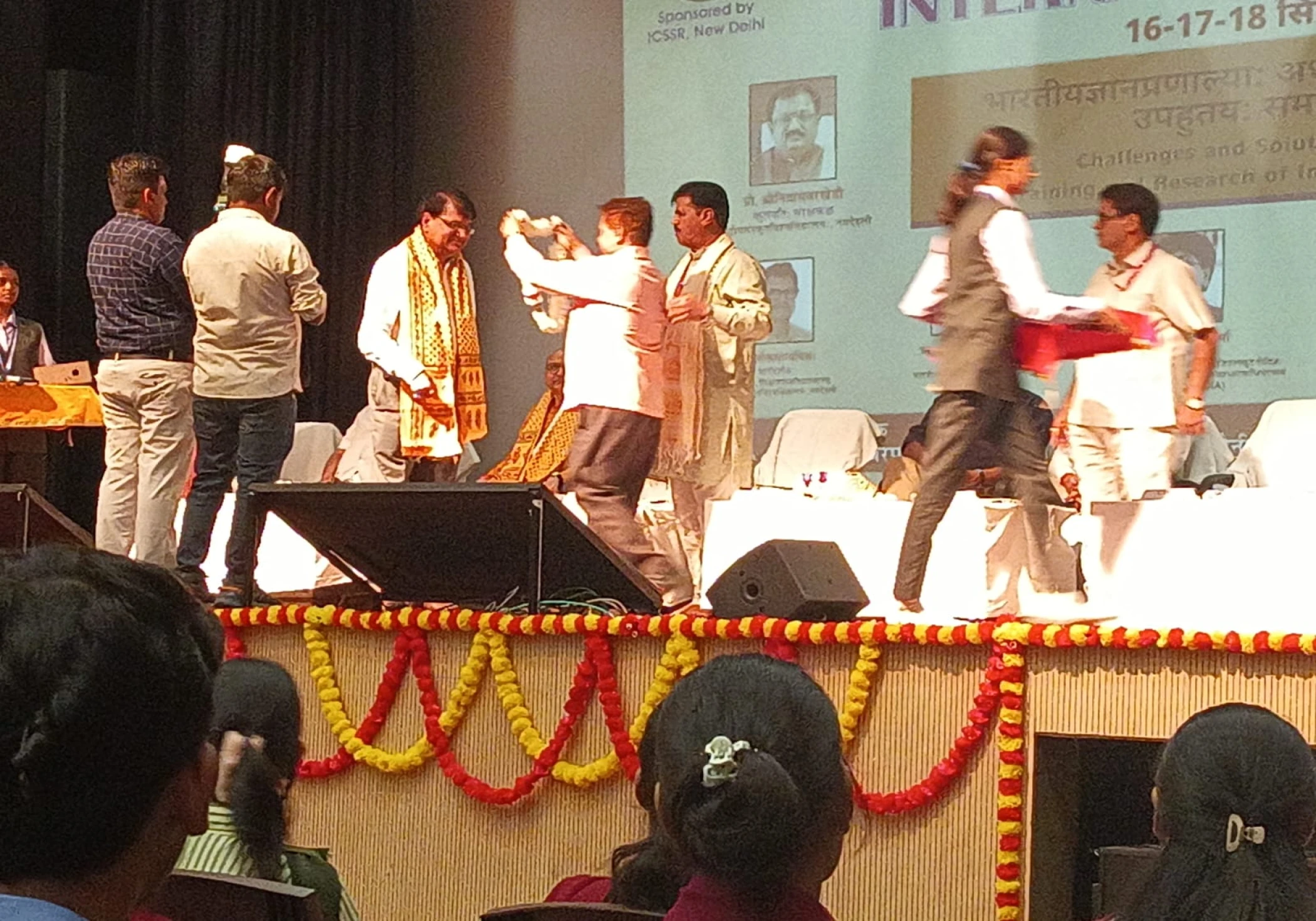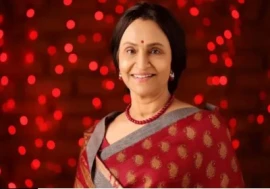
Jaipur, 16 September 2025: A three-day international seminar was organised today at the Central Sanskrit University in Jaipur. Its theme was "Sanskrit Language Knowledge Training and Research".
The keynote speakers for the event were Dr. DP Sharma, a digital diplomacy scientist and expert with the United Nations and the Prime Minister's brand ambassador for the Swachh Bharat Mission. Mr. Pushpendra Kulshrestha, a nationalist and prominent speaker, was also present as a special guest. Professor Avnish Bhatnagar, Vice-Chancellor of Hardev Joshi Journalism University and Vice-President of Vidya Bharati, was also present.
Under the joint auspices of ICSSR and Central Sanskrit University, Jaipur campus, a three-day international seminar was organized on the topic “Bharatiyagyanpranalyaah adhyanye trainingne shodhe cha upahutayah samadhanani cha”. The inaugural ceremony of the seminar was held in the morning on 16th September. After Saraswati puja, assistant teacher Ms. Sadhna Arya performed the invocation.
Dr. Kailash Chandra Saini welcomed the guests with a welcome address. Following this, the symposium's coordinator, Dr. Dambarudhar Pati, presented the symposium's theme, goals, and objectives in his introduction. He stated, "The creation of the Indian knowledge system is a dedication to the nation. Sanskrit, the language of knowledge and science, should be present not only in language but also in life. When challenges and their solutions are considered, the Indian knowledge system will be implemented."
Prof. D.P. Sharma, International Digital Diplomat of the International Labour Organization and Ambassador for the Swachh Bharat Abhiyan, was the keynote speaker. In his speech, he stated, "Sanskrit is the most structured language. Being a rule-based language, Sanskrit could be ideally suited for AI, eliminating the problem of ambiguous words and phrases. However, in-depth research and study is needed. Just making assumptions won't suffice. We need to ground our ideologies with scientific evidence. The concept of computer design is derived from Vedic mathematics. We must become reinventors, not inventors."
Vidya Bharati National Vice President Shri Avnish Bhatnagar, who was present as a special guest at the event, said, "There are numerous opportunities in the areas of study, teaching, training, and research in the Indian knowledge system. The Indian knowledge tradition is not a topic of 2020; it is very ancient and eternal. We must awaken goodwill among living beings – which is possible through the victory of righteousness and the destruction of unrighteousness. Therefore, we must all understand our duties and have a spirit of living together."
Speaking at the event as Saraswatitithi, Professor Nand Kishore Pandey, Vice Chancellor of Haridev Joshi University of Journalism and Mass Communication, said, "Journalism revolutionized Indian history. Examples include Bharatendu Harishchandra, Pt. Madan Mohan Malaviya, and Mahavir Prasad Dwivedi. Pre-independence journalism and journalists awakened the nation's inner self, and Sanskrit played a significant role in this."
Subsequently, the two-volume research journal of the international symposium, "Shikshadrishti," was released by the guests. The journal, which presents 135 selected articles, is edited by the program coordinator, Dr. Damburudhar Pati.
Thereafter, the keynote speaker, social worker Shri Pushpendra Kulshrestha, said, “There is a philosophy hidden behind every Sanskrit word. All words reflect the history of Indian culture. All youth should be proud of the superiority of Indian culture. Giving contemporary examples, Shri Kulshrestha explained that this is the first step towards preserving Indianness. The world knows about Indian culture through the principles of Maryada Purushottam Shri Ram and Chanakya. The first step towards preserving Indianness is to awaken nationalism in the hearts of university students and common citizens.”
In the series of programmes, Journalism Award Programme was organised in which many eminent journalists were honoured by the University.
Guest of honor, renowned journalist L.C. Bharti, said that to promote Sanskrit, it must be made employment-oriented. I am reserving a page in my newspaper for students who write articles and poems in Sanskrit, so that Sanskrit students' interest in journalism increases.
In his presidential address, University Director Professor Y.S. Ramesh stated, "The guidance of the guests will prove to be a guiding light in this symposium. We must choose a path that leads to development rather than destruction."
Finally, Dr. Anju Chaudhary expressed her gratitude to all the guests present. The program was successfully conducted by the campus's Assistant Principal, Mr. Naresh Singh.


_270_x_189.webp)